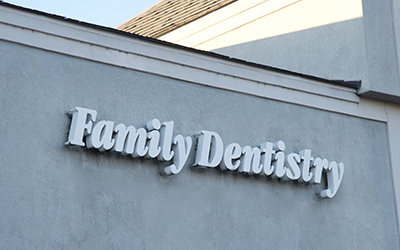A+
A-
A
Main Content

As practice transition specialists, we are often asked, “Is now a good time to sell my dental practice?” While there are many factors involved in making the decision to transition your practice, the short answer is YES. The current practice transition environment features several attributes that are helping to enhance practice value and make it an ideal time to consider a practice sale. These include:
- High Demand – The substantial increase in the
profitability of dental practices and the poor economic outlook in
medicine have caused a significant increase in dental school applicants
over the past 10 years. With 61 dental schools currently operating in
the United States and Puerto Rico and several more in the works, the
number of dental school graduates will likely top 5,000 in the coming
years. As a result, the pool of potential buyers has increased
dramatically over the past few years, and this trend is expected to
continue in the near future. With a surge in the number of potential
buyers comes an increase in the demand for quality practice acquisition
opportunities.
- Limited Supply of Acquisition Opportunities – Many
doctors who are well within retirement age have delayed the sale of
their practices due to the recession. As a result, there have been a
relatively fixed number of practice acquisition opportunities available
over the past few years. The increase in demand coupled with a limited
supply of quality opportunities has resulted in an increase in the value
and marketability of dental practices.
- Low Interest Rates – Due to the fact that most
buyers rely on third party financing to fund practice purchases,
interest rates and the availability of capital play a major role in
practice value and transitions. Interest rates are currently at an
all-time low and numerous lenders are offering 100% financing plus
working capital to qualified buyers. The current availability and low
cost of capital is allowing buyers to comfortably afford to purchase
practices, and fueling the increased demand for quality practice
purchase opportunities.
- High Cost of Practice Start-Ups – Another
contributing factor to the increase in practice values is the rising
cost of establishing a new dental practice. The prices of dental
equipment, technology, and leasehold improvements have increased
dramatically over the past decade, resulting in an average cost of
approximately $500,000 to start a practice from scratch. Combined with
the significant living expense needs of most dental school graduates
(due in large part to a high level of student loan debt), and the time
and cost required to start a practice and generate a profit, many
doctors are focusing on purchasing an established practice rather than
pursuing a start-up. Real estate agents who focus on dental office space
have also commented that private practices are struggling to compete
with large corporate practices for prime dental locations.
- Increasing Burden of Management – More now than
ever, dentists must be proficient in managing the business side of their
practices in order to be successful. We have seen many established
doctors experience an increase in their stress level over the past few
years in regards to managing staff issues/turnover, dealing with PPO
plans, implementing an effective marketing plan, controlling overhead,
etc. There are currently transition options available to doctors who
desire to lighten their management burden, cash out the value of their
offices at the peak of the market, and continue working at their office
until retirement.
- Adverse Changes in Future Market Conditions – While
market conditions are currently very favorable for sellers, we are
expecting several changes to occur over the next few years that will
likely put downward pressure on practice values, including:
- Increasing Number of Acquisition Opportunities – As
the baby boomer generation reaches retirement age and the economy and
stock market continue their recovery, more and more sellers will enter
the marketplace. Therefore, it is expected that supply and demand will
eventually reach equilibrium and it will no longer be a ‘seller’s
market.’
- Increasing Interest Rates – Interest rates for
dental loans are expected to increase by .5 – 1% in 2017. Since most
buyers are relying on 100% financing from dental lenders to fund their
practice acquisitions, a significant increase in interest rates will
harm the buyer’s cash flow and could adversely impact practice values.
- Increasing Number of Female Dentists – The
demographics tell us that there will be a substantial increase in female
dentists entering the marketplace over the next few years. While female
dentists make excellent practice owners, many of these dentists will
likely choose to work part-time and/or refrain from pursuing practice
ownership opportunities, which could result in a decrease in demand.
- Other Factors – Downward pressure on pricing (from
PPO plans), upward pressure on overhead (technology, marketing, etc.),
increasing competition (growth of corporate dentistry), increasing
management burden (discussed above), and rising student loan debt
The factors we have discussed in this article make 2017 an ideal time
to consider selling your practice. If you are considering a practice
transition, don’t go at it alone. A practice broker will help you
formulate a transition strategy to meet your individual needs,
confidentially market your practice to find a buyer who is the right fit
for your office, provide a structured closing process to facilitate a
smooth and timely transition, and maximize the value you receive for
your practice.
(Article courtesy of the National Association of Practice Brokers)
Posted on Mar 1, 2017
Image Credit:














